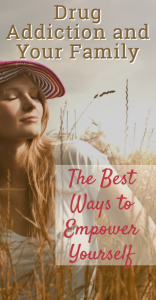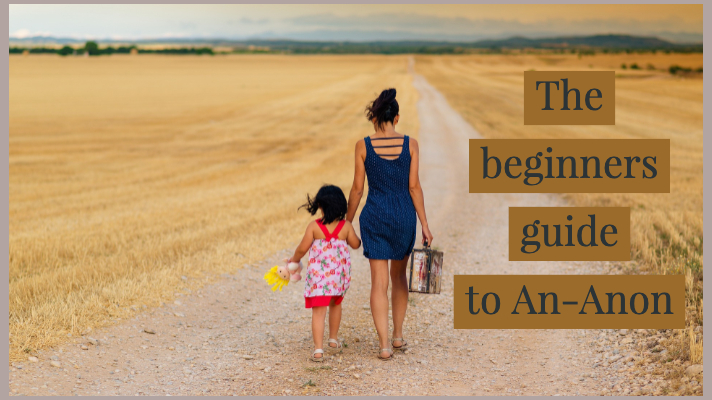The Al-anon program is often misunderstood
After being sober for many years, this is my Al-Anon summary. Hang with me because I am embarrassed by my lack of knowledge. There was a guy named Bill Wilson, who started an organization called Alcoholics Anonymous. He was married to a woman named Lois. This poor lady stayed by his side during his terrible drinking years.
She started an organization called Al-Anon to help other people who were married to sick alcoholics. This was a good way for them to have their own meetings and not feel left out. The AA meetings were fun with lots of laughter; often times the attendees celebrated various achievements with cake and coffee. The Al-Anon meetings were serious and often sad because they mostly complained about the alcoholics. There was nothing to celebrate.

Personal Alanon Experience
My information was not very accurate …. this is what happened. When I first started dating my husband, he was a very involved member of Al-Anon. I thought it completely strange since he did not grow up in an alcoholic household.
In fact, none of his relatives have had a drinking or drug problem. He told me that he “qualified” because his ex-wife was a drug addict and alcoholic. But, that didn’t make sense either because they were both sober when they met. He told me that she had “power” over his emotions. For example, if she wanted to make him really angry, she knew just the right buttons to push. So, he was learning “her behavior is none of my business”. He was not giving her the power to control his day.?
That was weird. I thought surely that people went to Al-Anon so they would be told to leave their drinking spouse or cut off their drug-using kids. He explained — this is not true. If the person wants to stay in that relationship, that is fine. However, the alcoholic or addict will not “call the shots” anymore. Their destructive behavior will have no effect on the household. This means — stop throwing the booze and dope away. Stop making empty demands and threats to make the person quit.
When your loved one wants to get help for their addiction
Now, if the person wants to change, that is a different story. I help people get into treatment centers every day. I am shocked at the amount of success I get to see. Addiction and Alcoholism are both deadly diseases with high relapse rates. However, there are effective treatments. I have watched so many folks turn their life around.
If the person refuses to change — can Al-Anon “fix me”?
I can’t be sure, but I know that the change in my husband has been profound. To see if you might be interested, here are the twenty questions from their website.
Millions of people are affected by the excessive drinking of someone close. The following questions are designed to help you decide whether or not you need Al-Anon:
- Do you worry about how much someone drinks?
- Do you have money problems because of someone else’s drinking?
- Do you tell lies to cover up for someone else’s drinking?
- Do you feel that if the drinker cared about you, he or she would stop drinking to please you?
- Do you blame the drinker’s behavior on his or her companions?
- Are plans frequently upset or canceled or meals delayed because of the drinker
- Do you make threats, such as, “If you don’t stop drinking, I’ll leave you”?
- Do you secretly try to smell the drinker’s breath?
- Are you afraid to upset someone for fear it will set off a drinking bout?
- Have you been hurt or embarrassed by a drinker’s behavior?
- Are holidays and gatherings spoiled because of drinking?
- Have you considered calling the police for help in fear of abuse?
- Do you search for hidden alcohol?
- Do you ever ride in a car with a driver who has been drinking?
- Have you refused social invitations out of fear or anxiety?
- Do you feel like a failure because you can’t control the drinking?
- Do you think that if the drinker stopped drinking, your other problems would be solved?
- Do you ever threaten to hurt yourself to scare the drinker?
- Do you feel angry, confused, or depressed most of the time?
- Do you feel there is no one who understands your problems?
If you have checked any of these questions, Al-Anon or Alateen may be able to help. Find a meeting now.
Wow, that is a low bar for admission. Normally, you need to check anywhere from 12 to 19 questions “yes” out of 20. In this test, you qualify if you checked just one.
My list of 9 ways I empowered myself in Al-Anon:
If you are even a little bit curious about Al-Anon, please allow me to persuade you to go. I am not a “member” but I attended about 20 meetings. My motivation was curiosity (and maybe to better myself and better serve others). Here are my takeaways:
- People were crazy nice and welcoming
- There was laughter
- Coffee and cookies were regularly present.
- There was no weirdness or recruiting.
- I felt no pressure to come back.
- I was asked to share at the meeting and it’s always nice to talk about myself
- There were no dues or fees, but they passed a basket
- I was going to take an hour lunch break anyway, so it was a great use of time
- I left feeling better than when I came
 Let me end by giving you a more formal description I got over at my favorite site Healthline.
Let me end by giving you a more formal description I got over at my favorite site Healthline.
Al-Anon is a support network for people who are affected by another person’s alcoholism or alcohol abuse. People who live with the effects and consequences of a person’s addiction can use this group as a way to connect with other individuals facing similar challenges. Through this interaction, friends and relatives can gain a greater understanding of how they can cope and help their loved ones face the struggles of breaking an addiction. Al-Anon also helps people accept and address the emotional and mental effects a loved one’s alcoholism can have. A local chapter of AA can help you connect with an Al-Anon group.
Another Direction
I have written several articles on co-dependency. If you have a loved one in your life, offering a drastic “bottom line” might be the missing link. Just be sure that you are healthy, strong and in fit spiritual condition before you try to help someone else. In many cases, an intervention can be very successful. We have helped lots of families through this process. However, it really only works if your family has some kind of “leverage” over the person. You need to have a bottom line.
“If you don’t go to rehab you can’t live here anymore” is an example of a harsh bottom line. If you go this route, then it’s imperative that you follow through.
Enabling an Addict
When a plane is going down, the first thing the captain tells you is to put your emergency mask on before your child. It’s the same here. Make sure you take care of yourself before you help your loved one. If you wondering if you are helping the drug addict in your life of hurting them, you can read some more on the subject.
In the meanwhile, check out an Al-Anon meeting. What do you have to lose?
SaveSaveSaveSave
SaveSave
SaveSave
SaveSave
SaveSave
